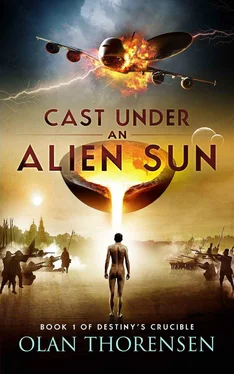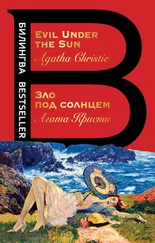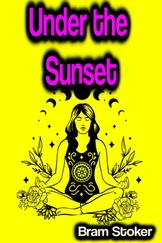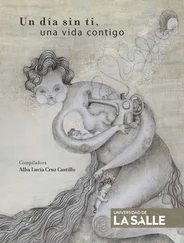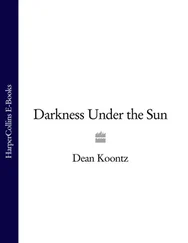He decided an initial approach to brother Fitham would be the safest test. If Fitham wasn’t fazed, then he would try the abbot. On Godsday, the brothers and the sisters were encouraged to mix freely with staff and visitors. The following Godsday evening, Yozef made sure he sat at a table for four with Fitham. The other three did most of the talking during the meal—Yozef waiting for his chance. When the other two finished and excused themselves, Brother Fitham looked across the table at Yozef.
“I noticed how quiet you’ve been this evening, Yozef. Is there something troubling you?”
Here goes nothing . “Brother Fitham, the man brought in several days ago with the badly injured leg. Something is troubling me, and I wonder if you could advise me.”
“Certainly, Yozef. Why don’t we walk around the grounds? It’ll be quiet this time of Godsday, and we’ll not be interrupted.”
They strolled behind the main buildings and were well into the garden, surrounded by shrubbery and flowers just in the middle of the late season bloom, the last twilight lighting up the few clouds in the sky.
“Brother Fitham—” Yozef said, and the older man placed a frail hand on his shoulder.
“Please, Yozef, call me Petros, or Brother Petros, if you must. I always feel it’s better than the ‘Brother Fitham’ title.”
“Thank you . . . Petros. I’m afraid I still don’t know what’s acceptable behavior and custom here.”
“I think you’re adjusting well, considering you were ripped from your home and family, all you knew, and thrown on a strange shore, probably never to see your home again. It would hardly be surprising that you’d have a difficult time adjusting, but from what I see, you’ve done well. The one thing I wonder is whether you have given serious thought to your future? If you’re here for the rest of your life, what is it you want and how can we help you find a place with us?”
“I admit I haven’t fully adjusted to everything that’s happened, but I appreciate all of the kindness and consideration you and the abbey have given me, and I’ve wished I could repay you all in some way. That’s what I wanted to talk with you about.”
They moved into a grove of trees sporting lavender blossoms, some of the petals dropping as the earliest bloomers began to fall. He gathered his thoughts and then came to the point.
“About the poor man with the badly injured leg. I could hear him when they started the amputation.” Yozef’s expression and voice relived the night before.
Petros sighed. “Yes, a terrible injury. The leg hopelessly injured. There was no option except taking it. Otherwise, he surely would have died after suffering for days or sixdays. There’s always danger for such procedures. Unfortunately, his age and weak constitution worked against him. However, I assure you the medicants here are as good as any in the province. If they couldn’t save him, it’s unlikely anyone could have.”
“I don’t doubt their skill, Petros. What I’m wondering is whether the pain and shock of the surgery killed him and not the injury itself.”
“Well . . . yes,” said a puzzled brother. “The stress on him was simply too much.”
“What if he hadn’t felt the surgery? What if he had been unconscious at the time?”
“Then he might have lived. But we only have two ways to produce unconsciousness. One is with drugs, but these are in terribly short supply with the Narthani embargo and are severely rationed. In fact, at the moment we have no supply at all here at the abbey. The medicants are delaying every surgery they can until a new supply comes, but the man last night couldn’t wait.
“The second method is a careful blow to the head. It’s a well-tested method, using a small sack of wet sand and a skilled blow to the back of the head to induce unconsciousness. Here again, the man was unfortunate. He’d had a serious head injury when younger, and they feared the blow would kill him. It was a hard decision to try the surgery while he was conscious and hope he could come through with God’s grace.”
“Petros, you know I was a student. I’ve spoken with the abbot briefly about this. Our school, er . . . scholasticum, believed in education in many subjects, so the student has basic knowledge in many fields before specializing. My main study was what we called ‘chemistry,’ the mixing of materials to produce other and different materials.”
“Something like our apothecaries?” said Petros.
“Not exactly. Some students specialized to be apothecaries, but chemistry studies how to produce substances that could be used in other skills and trades.”
“This sounds like some of what many of our craftsmen do. Their procedures are usually specific to the trade, but am I understanding you were being trained in such procedures for use in many different trades?”
“Something like that, Petros. But more in learning basic skills to create entirely new products not previously known.”
“If you don’t know what the product is, why would you make it?”
“Perhaps I’m not explaining well, but we believe that by knowing many skills, you could combine them in new ways not previously conceived.”
Petros rubbed his trim gray beard. “Well, I suppose I can see some reasoning in that. So, you trained in this ‘chemistry’?”
“Yes. And that’s what I want to talk with you about. One of the new substances that can be made by mixing two different known substances is called ‘ether.’”
“Ether?” said Petros, carefully pronouncing it. “And what is this ether good for?”
“It has many uses, most of which I don’t understand or couldn’t explain—remember my education wasn’t complete. But the one use is that if a person inhales just a few breaths of it, he goes into a deep sleep and will not waken for perhaps an hour or more.”
Petros didn’t know where Yozef was headed. “I can see it useful if someone cannot get to sleep . . . so I guess it would have its uses.”
“No, Petros. Not just a deep sleep. They will be unconscious and not react to anything for that time. It’s used in surgical procedures the same way as the drugs or blows are used by your medicants. After an hour or more, the person comes awake with no harm, which the blow to the head might cause.”
Petros had stopped on the path and turned facing Yozef, his face blank as he considered what he’d just heard. A look of wonder developed. “My God,” he whispered, his eyes refocused on Yozef, “and since you’re telling me this, does this mean you know how to make this ‘ether?’”
“I believe so. I’ve never made it myself, but I think I remember enough of the steps that it can be done.”
“My God,” Petros repeated. “We need to talk to Diera, Sistian, and the other medicants of this! They will think it a gift and a sign from God!”
Petros grasped Yozef’s left arm in a vise-like grip for someone his age, and, linked together, they hustled to the main courtyard, through the main gate, and along the pebble path to the Beynom’s residence outside the complex.
Diera Beynom answered Petros’s loud knocking, surprised to see the excited, bent brother pulling on Yozef and by Petros’s insistence on seeing her and the abbot “immediately.” She led them to a sitting room, while she went to pull Sistian from his reading. It took Petros only a few minutes to lay out to the abbot and the abbess what Yozef told him. As proficient as Yozef had become in the language, he had trouble following the rapid-fire speech of the excited Petros and questions by the abbot and the leading medicant.
Diera turned to Yozef. “You say you know how to make this ether, but have you ever made it yourself and used it?”
Читать дальше
